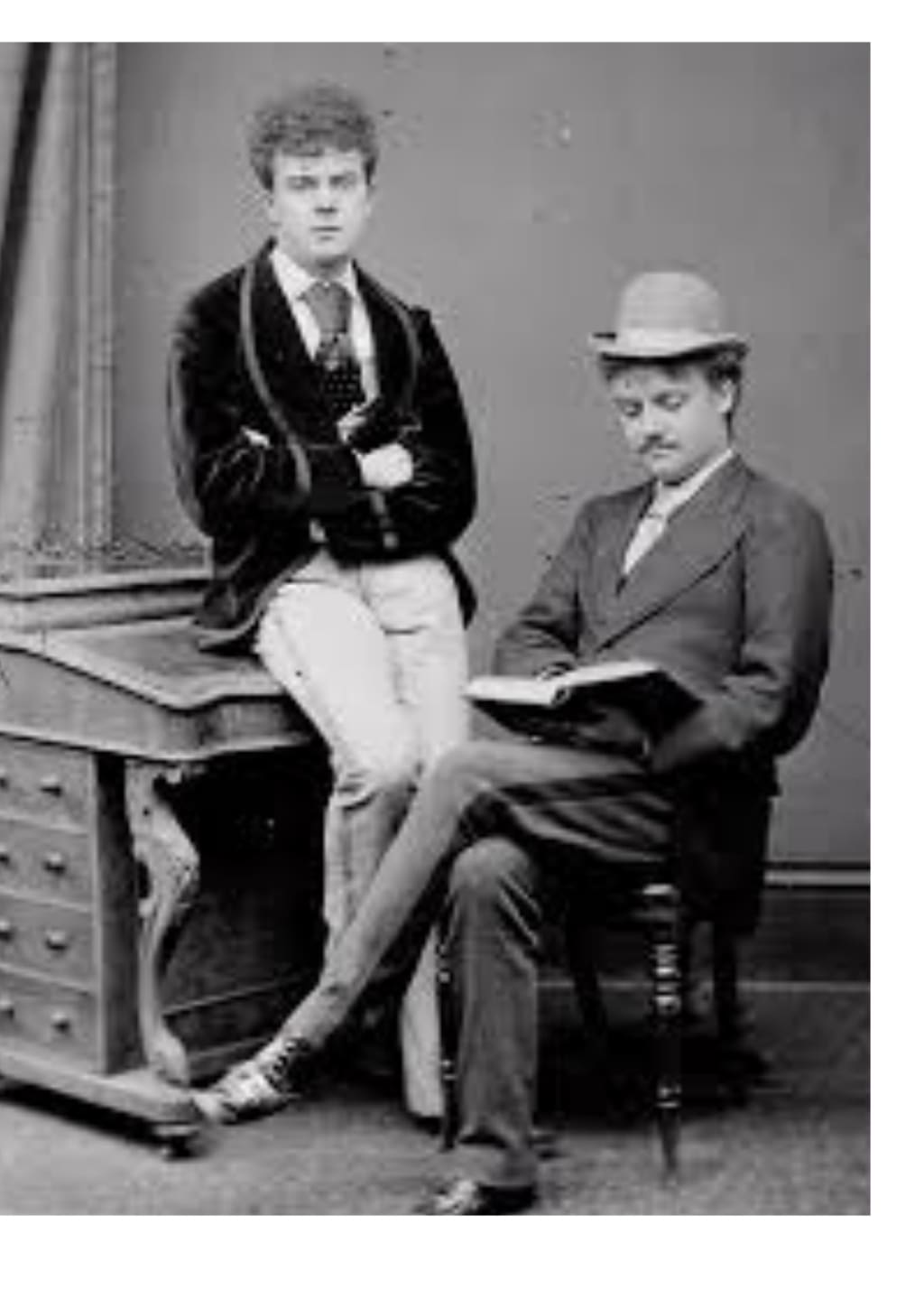CROSSDRESSING IN VICTORIAN LONDON
In April 1870, a crowd of over one thousand people gathered outside of the Bow Street Magistrate’s office to watch the spectacle.

In April 1870, a crowd of over one thousand people gathered outside of the Bow Street Magistrate’s office to watch the spectacle.
Underneath the surface of Victorian morality, London was the heart of the sexual underground where sex in all its forms was easy to find, and members of the gay community created a covert subculture.
Thomas Boulton and Frederick Park were two Victorian cross-dressers. Known as Fanny and Stella respectively, they were two friends who bonded over their mutual love of cross-dressing. Boulton and Park were both homosexual, and both enjoyed wearing women’s clothes. They also both enjoyed taking part in theatrical performances, playing the women’s roles whenever they could. It is possible that they requested money for sex, although there’s some dispute over this. In the late 1860s, they were joined on tour by Lord Arthur Clinton, the Liberal Party MP for Newark. Also, a homosexual, he and Boulton entered into a relationship and Boulton called himself Lord Clinton’s wife, and even had cards printed, showing his name as Lady Arthur Clinton.
Stella and Fanny’s public appearances soon drew the home secretary’s unwanted attention, who had been pushing the attorney-general to press charges against the men. They had already been in trouble with the law. Ernest Boulton had been arrested twice for dressing in women’s clothing, and they had accused Frederick Park of being a prostitute. The police had the men under surveillance for a year. One night, Dressed as Fanny and Stella, Boulton and Park joined a group of men at the Strand Theatre. According to witnesses, they shamelessly flirted with their party all night. Built in 1832, the Strand Theatre was a trendy location for bawdy burlesque shows and notorious as a scouting location for prostitutes. When Park and Boulton left the theatre, they were arrested along with MP Lord Arthur Clinton and brought to the Bow Street Magistrate’s court.
The next morning, a crowd of over one thousand people gathered outside of the court to watch the spectacle. Police escorted Boulton and Park out of the magistrate’s building. Emerging with their heads held high, the men carefully stepped into the van and were taken to jail. The onlookers gasped in shock. Boulton and Park were wearing women’s clothes. The two men were exposed to an unpleasant physical examination from the police surgeon and were held on remand for eight weeks.
The court prosecuted Park and Boulton for sodomy, which was a capital offence. They also charged MP Lord Arthur Clinton. Boulton’s mother’s testimony destroyed the prosecution’s case. She admitted that her son’s lifestyle was no secret, and her honesty made the whole situation surrounding the case seem exaggerated. The only evidence the prosecution could present was Boulton and Park were cross-dressers. Without any proof of sodomy, the jury found them not guilty and the court released them.
The case shocked Britain because it forced society to admit homosexuality existed in society for the first time. In the sensational trial, the judge, Sir Alexander Cockburn, was highly critical of the police investigation and the treatment of the men. The case was reported in all the prominent newspapers, most of it in explicit terms. They also published several penny pamphlets, focusing on every dramatic aspect of the case.
The events surrounding Boulton and Park make one of the critical actions in gay history. The arrest and trial had been interpreted differently over time, from innocent Victorian sentimentalism to a willful disregarding of the men’s sexuality by the courts to ensure they were acquitted. The case was a factor that led to introducing the 1885 Labouchere Amendment and made homosexual acts punishable.
Boulton and Park continued performing on stage after their trial, and both worked in the US for a while. Park died of (possibly) syphilis, and Boulton died in 1904 from a brain tumour.
Boulton’s lover, MP Lord Arthur Clinton, the son of a duke, died the day after receiving his summons. Although his official cause of death was scarlet fever, there was speculation his wealth and power allowed him to fake his death and live the rest of his life in exile.
Although the first gay rights organisation in England was formed in 1897, the British government did not decriminalise homosexuality until 1967.
In July 2013, the Marchmont Association erected a plaque where Fanny and Stella lived and their sensational trial.
About the Creator
Paul Asling
I share a special love for London, both new and old. I began writing fiction at 40, with most of my books and stories set in London.
MY WRITING WILL MAKE YOU LAUGH, CRY, AND HAVE YOU GRIPPED THROUGHOUT.
paulaslingauthor.com






Comments
There are no comments for this story
Be the first to respond and start the conversation.